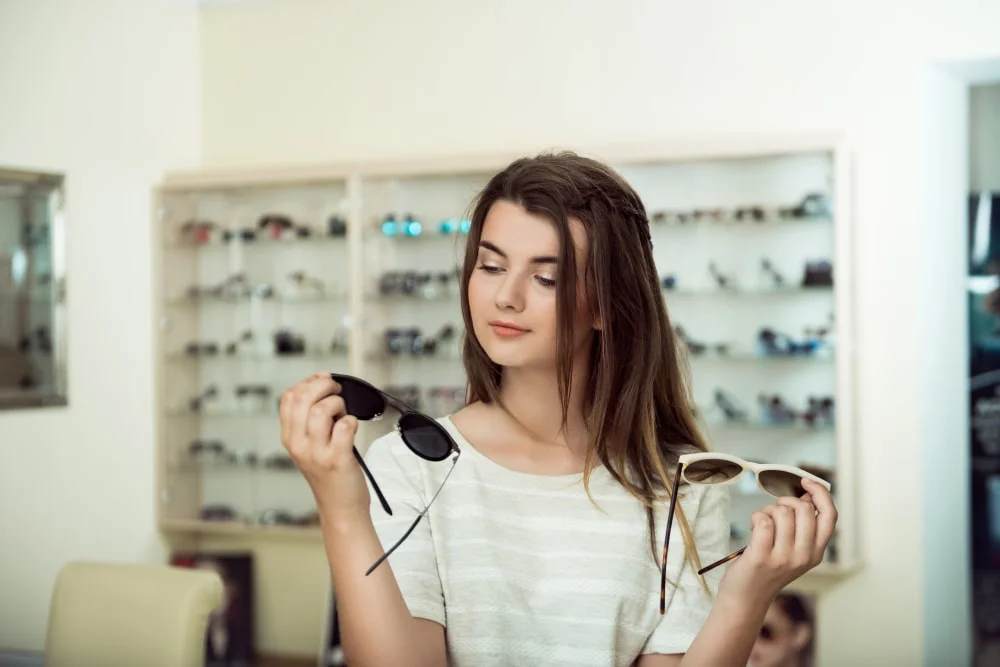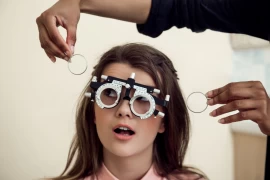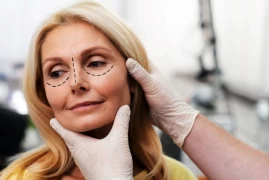
Sun: Is it a Friend or Foe for Eye Health?
- Sun: Is it a Friend or Foe for Eye Health?
- What are the Friend Aspects of Sunlight for Eye Health?
- What are the Foe Aspects of Sunlight for Eye Health?
- How Can You Protect Your Eyes from the Harmful Effects of Sunlight?
Our eyes are an important part of our lives, and keeping them healthy is crucial. There are many factors that can affect our eye health, and one of them is sunlight. The effects of sunlight on eye health have been studied for a long time. In this article, we will evaluate how sunlight can be both a friend and a foe for eye health.
What are the Friend Aspects of Sunlight for Eye Health?
Sunlight has several benefits for eye health:
- Vitamin D Synthesis: Sunlight converts 7-dehydrocholesterol in our skin into vitamin D3. Vitamin D is important for supporting healthy cellular functions in our eyes. Vitamin D deficiency can have negative effects on eye health. Exposure to sunlight supports vitamin D synthesis and preserves eye health.
- Mood Enhancement: Sunlight increases the release of serotonin, a neurotransmitter that improves mood. Serotonin is a chemical that uplifts mood and supports overall well-being. Exposure to sunlight can have a positive impact on our mood, indirectly supporting eye health.
- Reduction of Eye Diseases: Sunlight can reduce the risk of certain eye diseases. Specifically, the ultraviolet (UV) rays of the sun can have natural bactericidal and antiseptic effects. This can help reduce bacteria and microbes on the surface of the eye. Additionally, sunlight indirectly supports eye health by reducing seasonal affective disorder (SAD) and regulating sleep patterns.
- Improved Visual Acuity: Sunlight has an effect on the processing of visual information by the brain and enhances visual acuity. This can result in better contrast perception and color vision. These effects are among the improvements in eye health associated with exposure to sunlight.
- Melatonin Regulation: Sunlight can regulate the production of melatonin, a hormone that governs sleep patterns and our biological clock. Exposure to sunlight decreases melatonin secretion and promotes better sleep patterns. Good sleep is important for eye health.
- Slowing Myopia Progression: Sunlight slows down the progression of myopia by increasing dopamine synthesis in the retina, thereby reducing the elongation of the eye's axial length.
For these reasons, sunlight has some benefits for eye health. However, it is important to be cautious about protecting oneself from harmful UV rays. Using protective measures such as sunglasses and hats when going out in the sun is essential to safeguard your eye health. Additionally, regularly checking your eyes and seeking advice from a professional eye doctor are important.

What are the Foe Aspects of Sunlight for Eye Health?
- Ultraviolet (UV) Rays: UV rays from the sun are one of the biggest risk factors for eye health. Particularly, UVA and UVB rays can cause irritation, burning, and damage to the surface of the eyes, including the cornea. While this may be temporary with short-term exposure, long-term and repeated exposure can lead to serious eye diseases. They can increase the risk of conditions such as cataracts (clouding of the eye's natural lens), macular degeneration (damage to the central part of the retina), and pterygium (growth of tissue on the eye's surface).
- Sunburn and Irritation: Prolonged exposure to the sun can cause eyes to burn and become irritated. Especially during the summer months when the duration of sun exposure is longer, discomfort, redness, watering, and a sensation of foreign body in the eyes may occur. This condition can be more common in uncontrolled situations with extended periods of sun exposure and the absence of protective measures.
- Photokeratitis: Prolonged exposure to direct or reflected sunlight can cause a temporary eye condition called photokeratitis. This condition is characterized by burning and irritation of the surface of the eyes. It commonly occurs with excessive sun exposure during activities such as skiing, beach trips, or mountain tours.
- Macular Degeneration: Long-term and continuous exposure to UV light can increase the risk of age-related macular degeneration (AMD). AMD is an eye disease that leads to central vision loss as part of the aging process. UV rays from the sun can damage cells in the retina, increasing the risk of macular degeneration.
- Pterygium: Continuous exposure to UV rays from the sun can contribute to the development of a condition called pterygium. Pterygium is a triangular tissue growth that starts from the conjunctiva on the surface of the eye and extends toward the cornea. This condition can cause symptoms such as discomfort, redness, and blurred vision.
For these reasons, sunlight has some aspects that can be detrimental to eye health. Protecting yourself from UV radiation by using sunglasses, hats, and other preventive measures is important. Additionally, avoiding prolonged sun exposure during the strongest hours of sunlight (typically between 10:00 AM and 4:00 PM) is crucial for preserving eye health.
How Can You Protect Your Eyes from the Harmful Effects of Sunlight?
- Use Sunglasses: Wearing sunglasses is important to reduce the risk of UV rays damaging your eyes. When choosing sunglasses, make sure they provide UV protection. Opt for sunglasses labeled as "UV 400" or "100% UV protection."
- Wear a Wide-Brimmed Hat: Wearing a wide-brimmed hat along with sunglasses helps protect your eyes from the harmful effects of sunlight. The hat shades your eyes and face from direct sunlight.
- Monitor Sun Exposure Hours: Avoid prolonged outdoor exposure during the hours when the sun is the strongest (usually between 10:00 AM and 4:00 PM). Sun exposure during these hours carries a higher risk. If you are outside, don't forget to use sunglasses and wear a hat.
- Be Cautious with Contact Lenses: If you wear contact lenses, consider acquiring UV-protected lenses after consulting with your eye doctor before sun exposure. These lenses provide better protection against the harmful effects of UV rays on your eyes.
- Don't Neglect Eye Examinations: Regular eye examinations are important for monitoring your eye health and detecting potential issues early on. An eye doctor can provide you with information on the effects of sunlight on eye health and methods of protection.
In conclusion, we can say that sunlight has both friend and foe effects on eye health. While UV rays from the sun can affect the eyes, sunlight also aids in the synthesis of vitamin D and supports overall well-being. Protecting your eyes from the harmful effects of the sun through sunglasses, hats, and other preventive measures is crucial. Additionally, do not neglect regular eye examinations to monitor your eye health.






